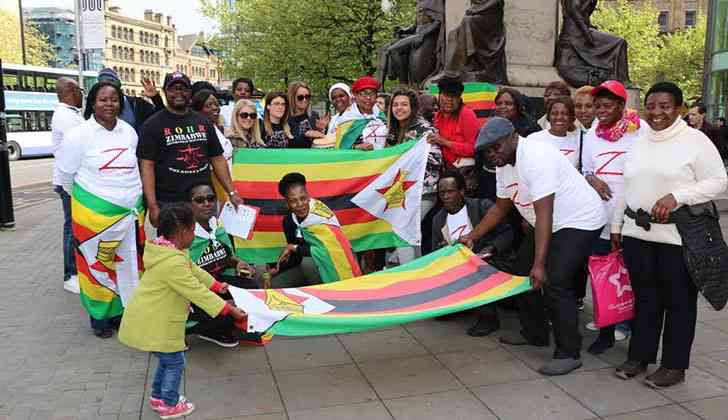
STUDIES have shown that gender-equal societies enjoy better health, stronger economic growth and higher security. There is also evidence that gender equality contributes to peace and that peace negotiations involving women have a better chance of being sustainable and effective.
Despite the strides taken and notable successes of women’s inclusion within foreign policy, inequality still exists. The underrepresentation of women in international relations greatly undermines prospects for gender parity. This is particularly true for African States. UN Women has even predicted that “gender equality will not be reached for another 130 years”. Currently, 21% of government ministers are women with only three countries globally having 50% or more women in Parliament and these countries being Rwanda, Cuba and Bolivia.
For decades, foreign policy has been a field primarily associated with and reserved for men. Women, by their very nature, have been perceived as ill-equipped for diplomatic careers and the rationale behind this being that they cannot serve in places considered to be unsafe, they need to serve as support system to their spouses and due to their family responsibilities, they would not be able to perform as required or expected.
Starting in the 1920s, women have had more opportunities to partake in various political and leadership roles due to women’s international movements for gender equality. However, they are still underrepresented in contemporary politics. Only 20,7% of the world’s ambassadors are female and that number is even smaller when we look at negotiators and chief mediators in peace negotiations.
Upon their realisation that gender equality is a wide concern for peace and security, the United Nations (UN) Security Council adopted resolution 1325 on Women, Peace and Security (WPS) in 2000. This pushed States to institutionalise gender equality as a foreign policy priority focusing on areas such as diplomacy, aid, trade and defence. Countries, such as Kenya, Rwanda and South Africa even went further and included the WPS agenda as part of their foreign policies, and are strongly pushing for greater inclusion of women in peace diplomacy. South Africa also allocated a budget of approximately R560 million towards its National Action Plan (NAP) on WPS.
In order to end all forms of discrimination against women, they need to be incorporated into key political institutions and their participation as leaders in global governance should not be understated. Currently, 21% of government ministers globally are women which goes to show the lack of equality of representation. Within States, equal participation in political decision-making would enable a more accurate reflection of the composition of society thus, enhancing the legitimacy of political processes by making them democratic and responsive.
Women's appointment to foreign policy roles in their home countries is a key strategy to ensure greater participation of black African women in international politics. For example, South Africa's Phumzile Mlambo-Ngcuka who served as UN undersecretary-general and executive director of UN Women 2013-2021 had previously served as Deputy President under Thabo Mbeki between 2005 and 2008.
Uganda's engineer Winnie Byanyima, who served as the executive director of Oxfam International from 2013 to 2019 was previously Uganda's ambassador to France from 1989 to 1994. Last, but not least, Nigeria's Ngozi Okonjo-Iweala — who made history by becoming the first woman and African to hold the office of director-general of the World Trade Organisation — is Nigeria’s former Foreign Affairs minister.
- R. Kelly sentenced to 30 years in sex trafficking case
- In Full: sixteenth post-cabinet press briefing June 14, 2022
- New-look Beitbridge border impresses financiers
- Abwa commissions milk plant
Keep Reading
Even though we now have more women in politics, the knowledge production spaces are still dominated by male thought leaders.
The dominance of patriarchal socio-cultural values continues to undermine prospects for women to aspire towards or thrive within foreign policy-oriented spaces.
Even though efforts have been made, they do not translate into immediate gain in female participation in political leadership and governance.
The issue of gender itself is a controversial topic as it can be viewed as subjective. Foreign policy falls under the category of what States refer as “national interests”. In this regard, it then indicates how women and girls will continue facing a constant dilemma that questions their authority in the involvement of foreign policy in Africa. It is also important to note that States can effectively create a platform where there is vivid participation of women and girls only when significant effort is made to spread the awareness of gender sensitivity.
A number of suggestions can be made regarding the way forward in promoting women in foreign policy.
For starters, there is great need for governments to lead by example and pursue gender equity in staffing and leadership positions by empowering internal personnel mechanisms. Nations, whether defined as feminist or not, should implement government-wide policies that prioritise gender equality as a foreign and domestic priority. Moreover, governments may close the gender equality funding gap by setting budgetary targets for funding that prioritizes the advancement of women and girls as a primary goal across all budget priorities and money-making specific funds to directly support local women-led organisations.
There is also a great need for more ethnographic studies of gendered micro processes; including the gender norms, relations and identities at work in foreign policy institutions. Furthermore, it is necessary to reconstruct the perceived image of what a successful diplomat is and should be. Another way to enhance gender parity in the foreign service is to provide proper training for both women and men and only in this regard can gender sensitivity be achieved pertaining to the issue of foreign policy in Africa.
Taking everything into account, women must be included in external relations.
This is important for the simple reason that foreign policy should look like the people it represents. Being more diverse and inclusive can make the foreign policy more effective as policies that truly take into account the different needs of women can be implemented.










